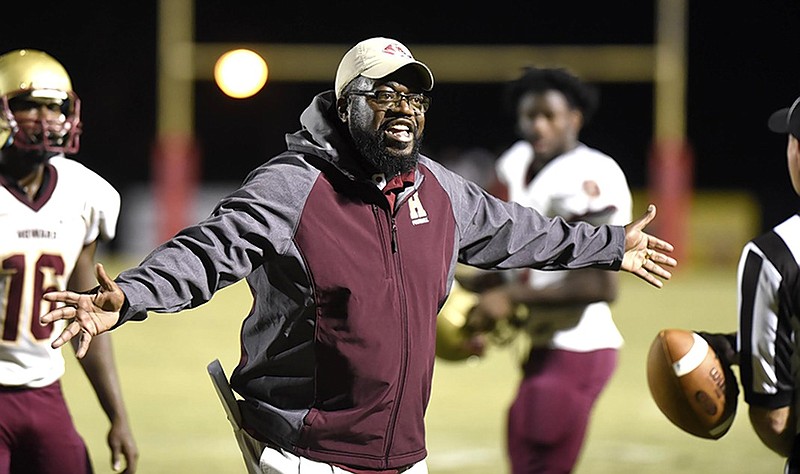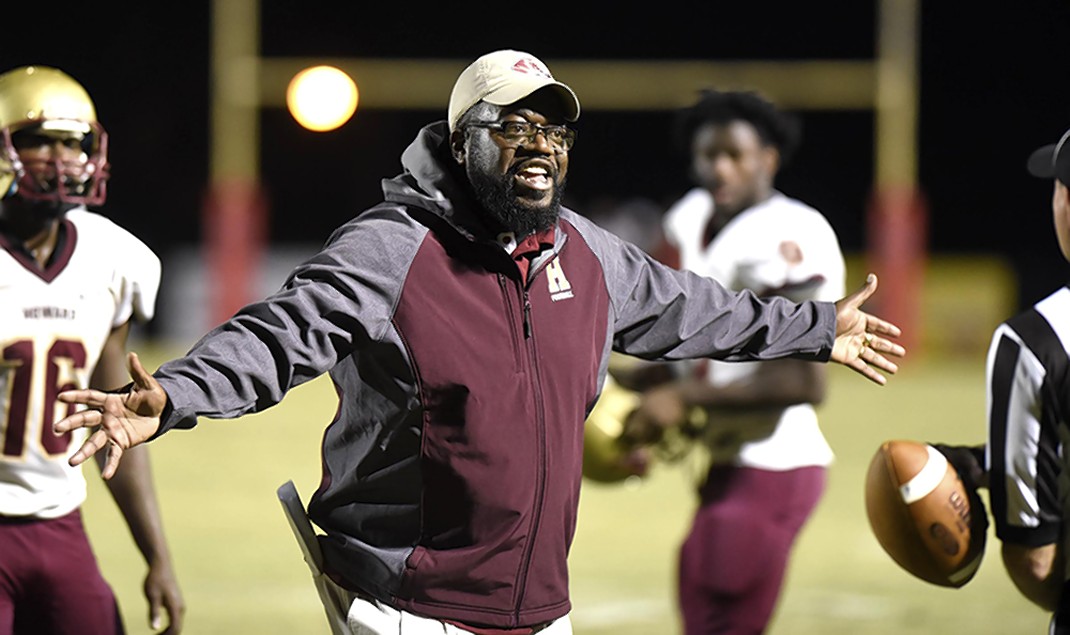As his team went through its pregame routine - warming up and making any last-minute adjustments before kickoff two weeks ago - Howard football coach John Starr sat helpless in the emergency room of a local hospital. A veteran of more than three decades of coaching, Starr had begun feeling sick the morning of the game but thought a few hours of rest would get him back on the sideline.
Instead, as game time drew closer and he became more agitated, Starr's blood pressure spiked so high that his wife had to rush him to the hospital, where he remained until his blood pressure returned to normal well after midnight.
"It's not the first time my blood pressure has gone haywire during the season, but that's the first time in my 33 years of coaching that I had to miss a whole game," Starr explained. "The funny thing is the previous two seasons were the first time I had made it through a season without having to go to a hospital for my blood pressure. I was carried off the field twice when I coached at Chattooga, and once I actually thought I was having a stroke in the locker room at halftime.
"Coaching can be extremely stressful. Plus I'm so intense and get so worked up that sometimes it's not good for my health."
Starr is among a large number of Chattanooga-area prep football coaches who admitted the stress of their jobs has negatively affected their health.
Including offseason workouts, spring practice and the season, high school football has become a year-round commitment not only for many players but the coaches as well. The demands on their time - which can also limit quality time spent with their family -and the expectations to produce success on the field can become overwhelming.
In the three days leading up to the season's kickoff, Notre Dame coach Charles Fant said he received 258 text messages that were related to the team.
"There's no such thing as an off day, and the outside world judges us by wins and losses only," said Chattanooga Christian School coach Mark Mariakis, who earlier in his 34-year career worked at Georgia's Ridgeland and Lakeview-Fort Oglethorpe. "If you don't win, you won't keep your job long, and that obviously affects where your family lives and how well you can provide for them. That livelihood is based on how well you prepared teenagers and how well those 15-16-year-old kids perform on game night.
"How many jobs out there is your performance placed on the front page of the newspaper or shown on the TV news? A coach's work has a light shined on it every week, and you're being judged by the scoreboard, or from parents by whether their kids are playing enough. It's what have you done for me lately, and the lately is every Friday night."
Mariakis added that a young assistant approached him recently after just one month on the job and explained he couldn't maintain the pace any longer and had decided to pursue another career.
There were 65 football head-coaching changes among TSSAA programs after the 2017 season, including 11 in the Chattanooga area. Over the past two seasons, there have been 21 coaching changes among the 55 tri-state area football programs.
First-year Copper Basin coach Chad Grabowski, who was let go at Red Bank after an 11-win season and a trip to the Class 3A semifinals last year, said the stress level during the season caused him to feel "run down and sick" for months. Soddy-Daisy coach Justin Barnes, a self-described "stress eater," admitted he gained nearly 40 pounds last season.
"It was just a matter of time before the stress level you saw at the college and professional level trickled down to high school coaches," said Dr. Bill Moore Smith, who has worked as a University of Tennessee at Chattanooga team physician and with numerous athletes throughout his career in the local area. "The big difference now is that the high school guys don't see the same financial gain from the game. There's no buyout if they're let go from their job at that level, but the stress is very much the same.
"You've got guys trying to find ways to win at programs with fewer numbers and that are underfunded, especially at the public schools, so they just don't have the amount of help that's needed and wind up becoming like pack mules that take on more and more of the responsibilities. They run practice, line the field, make sure kids have a ride or even have enough to eat. It can all add up to some really serious health issues.
"We mandate that every kid has a physical before the season, but we should do the same for coaches and have a primary care physician they can contact during the season, too."
Derrick Davis has coached at his alma mater, Polk County, for 19 seasons. During one decade-long stretch he averaged eight wins, the best run in program history. He also pushed himself to maintain that pace until it began negatively affecting his health.
During halftime of a game at Central, paramedics were called over to check on Davis, who was complaining of chest pains and light-headedness. It was recommended he go to the emergency room, but he declined and remained at the game instead.
"I knew I needed to be back out on the field for the second half, so I just waited and eventually went to get checked out," said the 47-year-old Davis, who admitted he battles severe headaches during the season and once felt his face and lips go numb just before kickoff. He now takes two different types of medication to help regulate his blood pressure.
"During the season I usually go through spells of insomnia where I might sleep a couple of hours over a three- or four-day stretch. Sometimes I'll wake up in the middle of the night with my mind racing, thinking about the game plan and wondering if I've done everything I can to help us be prepared to win. There are times I'm up at 3 a.m. and just decide to drive to the field house and watch film because I know I can't sleep anyway, so I might as well get some work done.
"Most every coach I know of feels the pressure to either maintain a winning program or get things turned around or they know they won't keep their job long. There's no question this job isn't good for your health - we understand that. But the way we're wired, I'm not sure guys who are high-strung like me know any other way to coach."
Contact Stephen Hargis at shargis@timesfreepress.com or 423-757-6293. Follow him on Twitter @StephenHargis.

